Carles Puigdemont: The man who wants to break up Spain
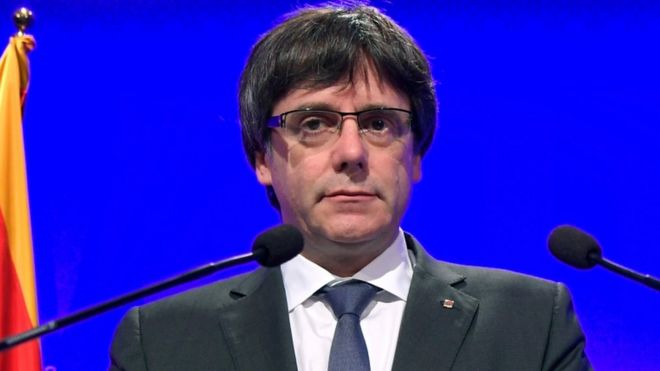 AFP/GETTY IMAGES
AFP/GETTY IMAGES
The drive for independence that delivered the banned 1 October referendum did not begin under his leadership. But such is his zeal for secession, that Catalonia's President Carles Puigdemont is prepared to risk its existing autonomy to achieve it.
In defiance of the law and Spain's constitution, he has pushed forward in the hope of international recognition.
It may well be a doomed journey in the eyes of Spain's allies in Brussels and Washington - but the meek-looking village baker's son from Girona is undaunted.
Spanish lessons
Born in Amer in 1962, he grew up under the dictatorship of Gen Francisco Franco and was taught in Spanish at a church-run boarding school, but spoke Catalan at home like others of his generation.
Joan Matamala, a few years his senior at the school, remembers the boy everyone got on with, even the older pupils.
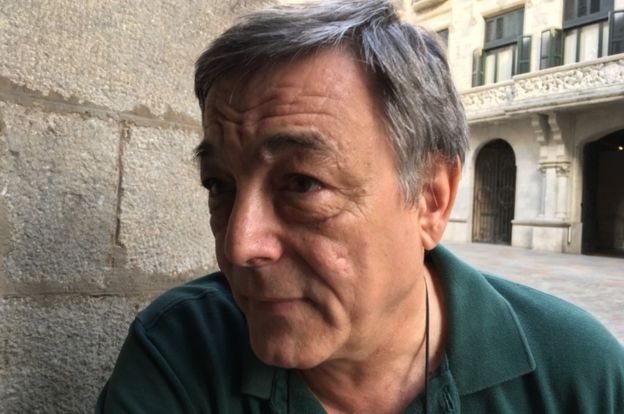
Mr Matamala runs a bookshop, Les Voltes, that has been promoting Catalan language and culture in Girona for 50 years. The young Puigdemont did not come over as a natural leader at the time but he was someone you did not forget, he says.
As a young man, Puigdemont had a passion for his native tongue, going on to study Catalan philology at the local university and polishing colleagues' copy when he first found work in the city's newspapers.
Miquel Riera worked with him at the fiercely pro-independence paper now known as El Punt Avui, often late into the night.
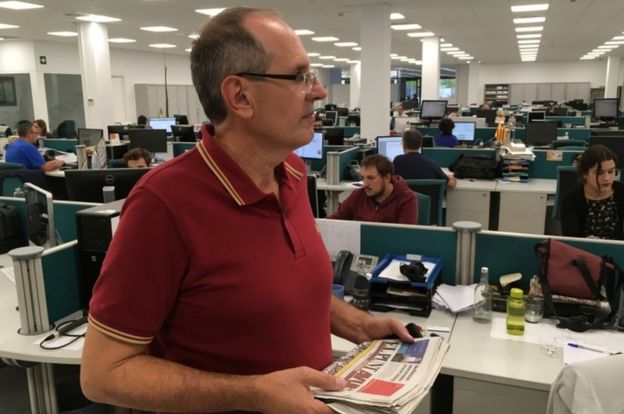
"Right from the start he was very interested in new technology and the internet," says Mr Riera. This may have fed Puigdemont's awareness of social media, which was crucial in promoting the referendum campaign.
"He's a man who makes friends easily," says Mr Riera, whose 25-year-old son, he says, was bruised on the chest by a police rifle butt at a polling station on Sunday.
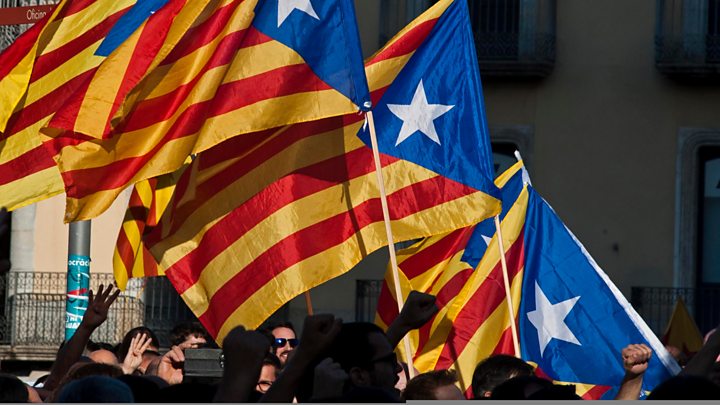
Mr Puigdemont served as mayor of Girona from 2011 until 2016 when he was elected regional president of Catalonia.
There is no denying his star appeal among his supporters, who clamour to take selfies with him at rallies.
His popularity cuts across class, coming as he does from comparatively modest origins, outside the Catalan elite which dominated the local centre-right alliance, Convergence and Union (now known as the Catalan European Democratic Party), for years.
- Divided Catalonia traumatised by violence
- Spanish king 'ignored millions of Catalans'
- Catalonia vote: Spain's biggest crisis for a generation
"Puigdemont has been absolutely key to bringing Catalonia to where we are now," says Montse Daban, international chairperson of the Catalan National Assembly, a grassroots pro-independence movement.
"He's been an absolute and positive surprise for Catalan citizens, who were already supporting the independence process and saw with dismay that it was facing several burdens."

But his actions have brought him into conflict with Spanish law. And in the eyes of Spain's government, the Catalan leader has ruthlessly created a crisis, burning all the bridges in order to make a unilateral declaration of independence.
"Democracy is not about voting - there are referenda in dictatorships too," a Madrid government source told the BBC. "Only when you vote with guarantees according to the law is it a democracy."
The images of violence at the polling stations were "150% part of Puigdemont's plan", the source said.
"It's unfortunate because it was a trap. There's no doubt it looks bad for the Spanish government."
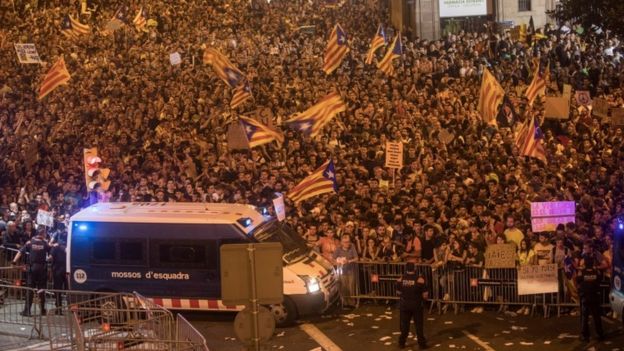 GETTY IMAGES
GETTY IMAGES
Mr Puigdemont talks the language of independence in a way his more cautious predecessor, Artur Mas, did not during the dry run referendum of 2014, which was also banned by Madrid.
Speaking to the BBC following Sunday's violence, Mr Puigdemont said: "I think we've won the right to be heard, but what I find harder to understand is this indifference - or absolute lack of interest - in understanding what is happening here. They've never wanted to listen to us.
"How can we explain to the world that Europe is a paradise of democracy if we hit old women and people who've done nothing wrong? This is not acceptable. We haven't seen such a disproportionate and brutal use of force since the death of the dictator Franco."
He has called for mediation - something the Spanish government says is unacceptable.
A Madrid source dismissed the idea, telling the BBC it would be "mediation between Spanish government and part of the Spanish state… mediation between law and someone who has no framework.
"Mediation about what?"
Rebellion
According to the same source, Mr Puigdemont is bypassing his own party in his zeal to declare independence, meeting grassroots pro-independence groups instead of conducting regional government business.
Would Mr Puigdemont risk a split at the top of the independence movement that could be fatal to the cause?
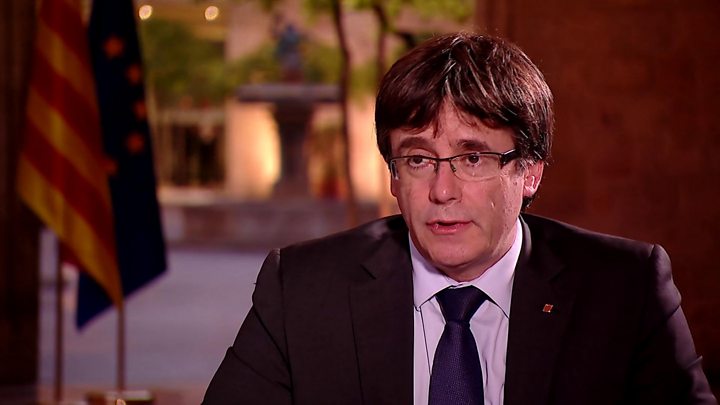
Out on the streets, expectations have soared as the concepts of independence and democracy blur into one.
Some independence supporters seem to have lost all fear of the Spanish police as their sense of outrage over Sunday's violence grows.
A handwritten poster on a Girona shop front reads: "Whoever sows rebellion reaps freedom. 1 October."
"He may be Spain's most dangerous man, since he seems to be heading towards a unilateral declaration of independence," says Manuel Arias Maldonado, political science professor at Málaga University.
"A different question is whether he controls at all what happens in Catalonia right now.
"If this is a revolution - and it looks like one - his power is diminished since he cannot dictate events."
Source: www.bbc.com By Patrick Jackson
Comments
Post a Comment
Please be brief